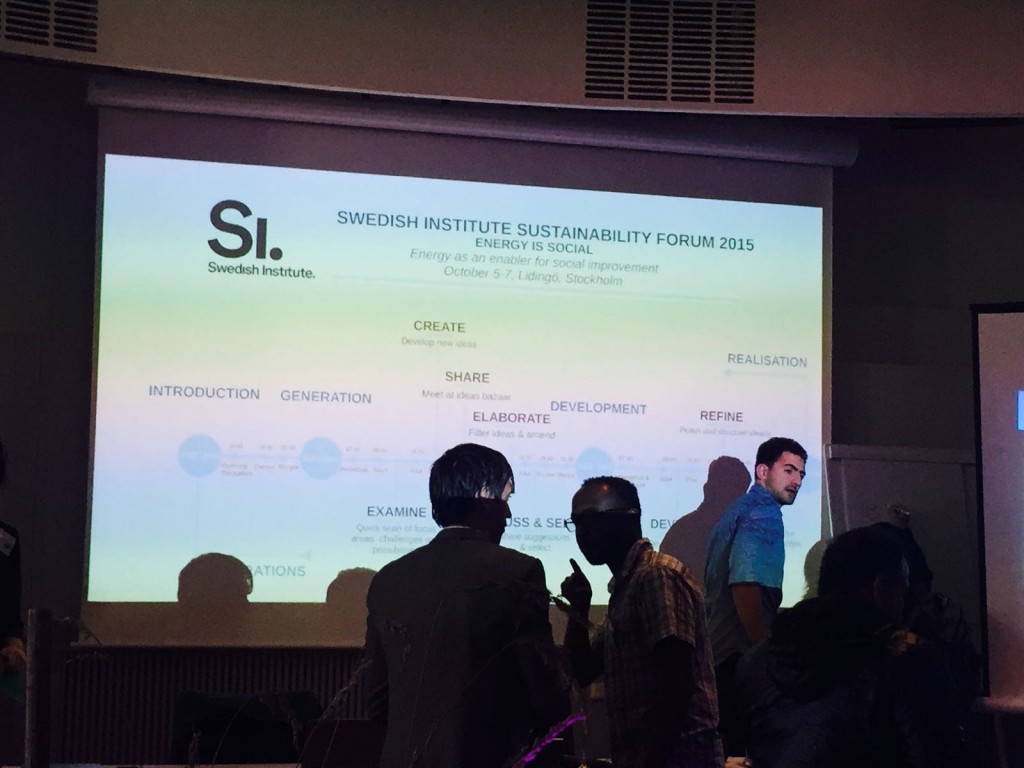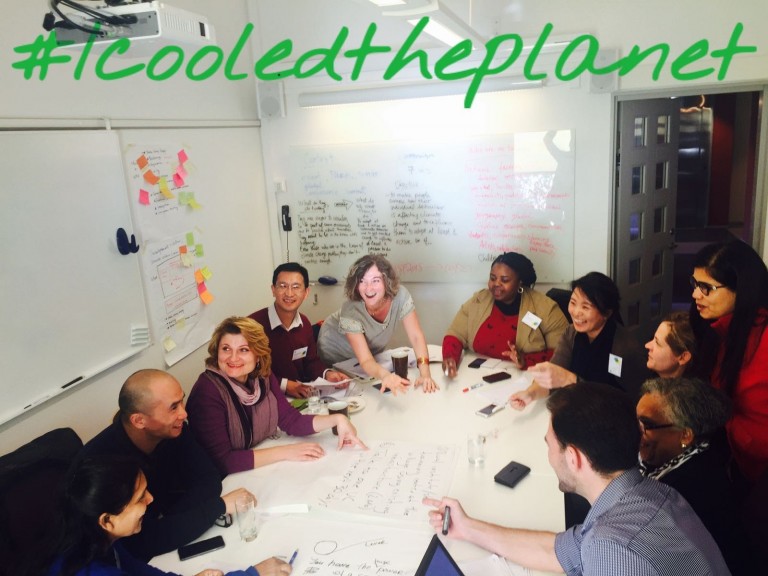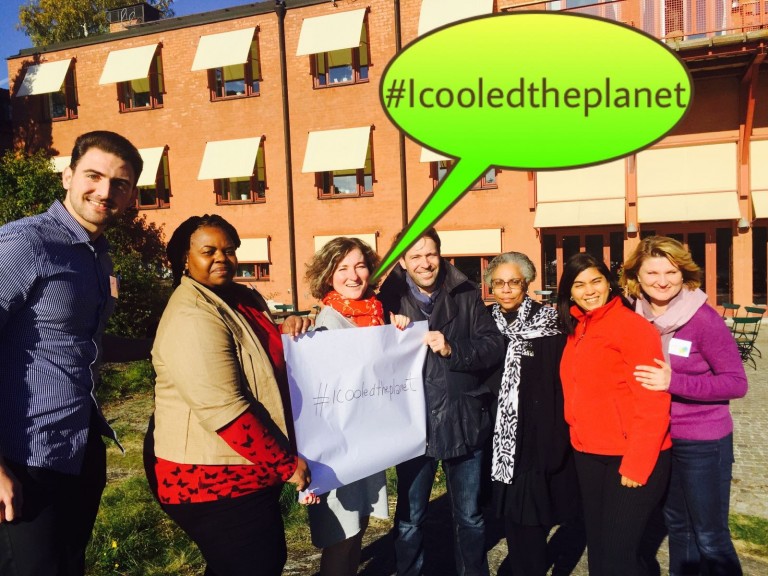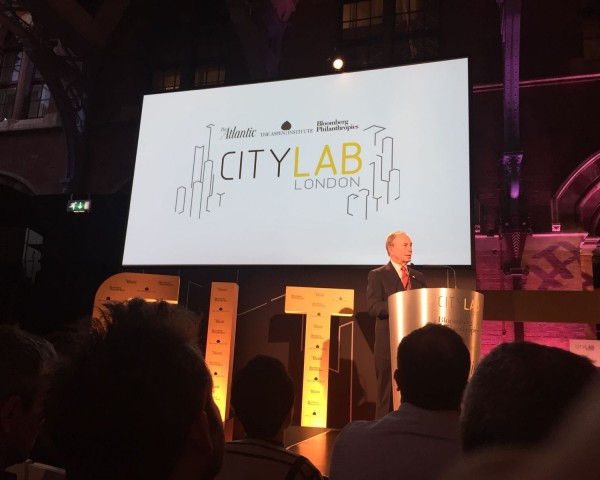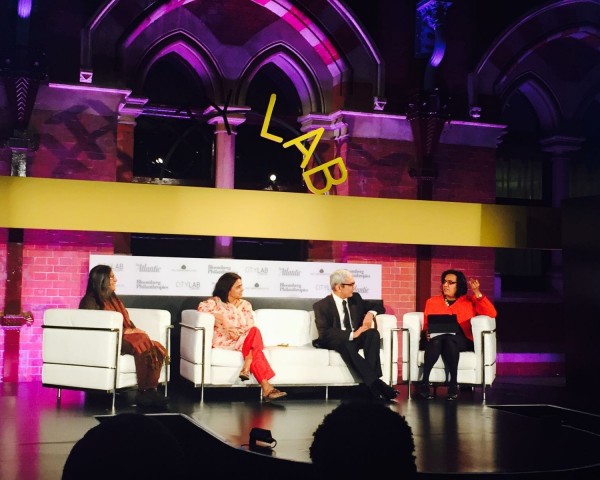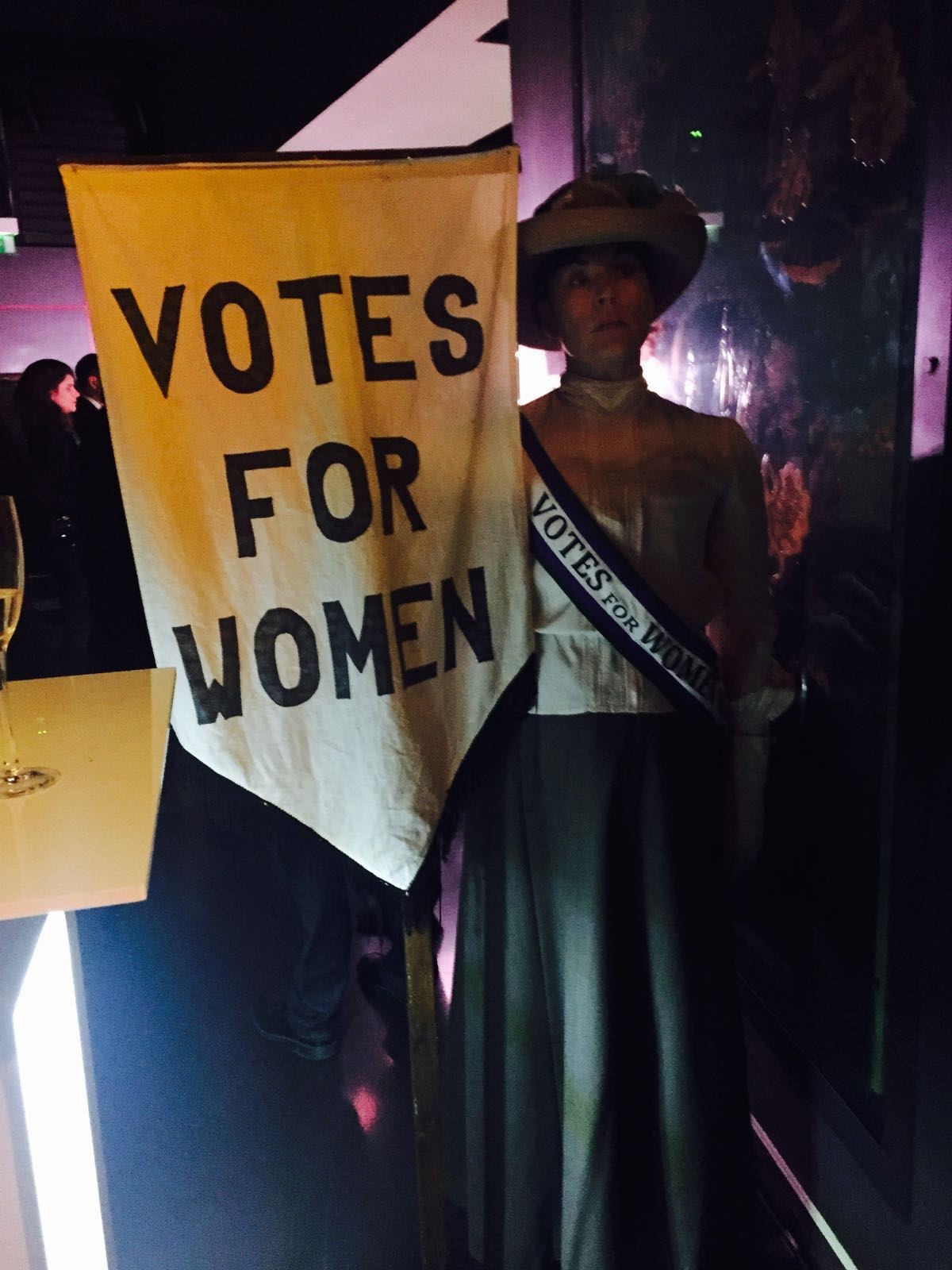Safecity at SISF and CityLab
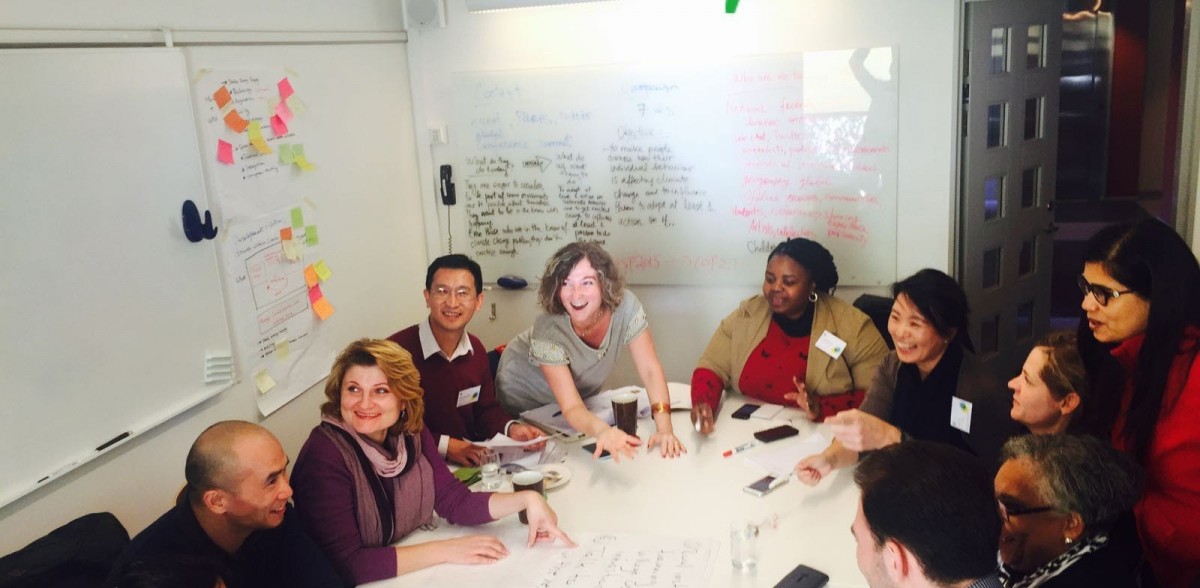
ElsaMarie D’Silva is the CoFounder & Managing Director of Safecity that crowdmaps sexual harassment in public spaces, and is a 2015 Aspen New Voices Fellow. You can follow her on twitter @elsamariedsilva
Safecity at SISF and CityLab
One of the United Nations Sustainable Development Goals SDG #5 states that ‘empowering women and promoting gender equality is crucial to accelerating sustainable development’. Ending all forms of discrimination against women and girls is not only a basic human right, but it also has a multiplier effect across all other development areas.
Therefore no social or developmental issue can be discussed without a lens on gender.
It is embedded in all interactions, institutions and structures of society, where cultures have exaggerated and emphasized differences between males and females in such a significant way that then justifies differential treatment of individuals based on gender. The different gender categories are associated with different access to power and resources based on perceived superiority (for men) or inferiority (for women).
Given our innovative work in documenting sexual violence in public spaces through crowdsourced data and technology, it is no wonder that Safecity has been invited to participate in various events on diverse topics to lend a perspective to the discussion.
In the last few months, we have been invited to The Swedish Institute Sustainability Forum (SISF) to discuss “Energy is Social” and the City Lab London to discuss urban planning issues and solutions with the city administrators and practitioners.
SDG #7 states that we must ‘ensure access to affordable, reliable, sustainable and modern energy for all’. This was the core theme of the SISF as energy is a fundamental driver for global development. The lack of access to basic energy services is a major barrier to economic and social development. The impacts of unsustainable patterns of development intensify gender inequality due to the fact that women and girls are often disproportionately affected by economic, social and environmental shocks and stresses.
Access to modern energy in itself is not sufficient to guarantee gender equality; it is, however, necessary in order to relieve women of drudgery and to give them more time to care for themselves and engage in activities that are more productive to them, thereby leading to empowerment and greater gender equality. Improved access to modern energy sources and electricity is essential to development as it contributes to poverty eradication, saves lives, improves health and helps provide for basic human needs. These services are essential to social inclusion and gender equality.
I joined a group of about 50 experts in diverse disciplines from around the world to discuss how we could mainstream energy to find practical solutions for climate change, economy, energy production and distribution, etc. Through an unconference model, the organisers were able to set the agenda, elicit group discussions and define actionable ideas in less than 48 hours.
During SISF all participants were encouraged to generate as many ideas as possible, which were narrowed down to a maximum of four and a minimum of two actionable ideas. Many of the ideas were inspired by energy challenges and opportunities identified during the preparation phase. Some of the ideas ranged from “putting a price on carbon” to an “SISF Smart Cloud” to “Accounting for energy consumption” to “e-car sharing” to “access to start up capital” and “innovative financing” for initiatives addressing energy needs. These ideas are valuable, plausible and can be refined further for implementation.
I was involved in a campaign that was immediately launched at SISF, ahead of the COP21, titled #Icooledtheplanet. It was initiated with the primary aim to raise awareness about individual impact on climate change and thus encourage people to adapt to new behaviours that are more sustainable. By gently nudging people to take simple action and reduce their energy consumption, the Campaign served as a platform to raise awareness of the relationship between the goals and consequences of the COP21 and individuals’ daily lives.
SDG #11 states that we must ‘make cities and human settlements inclusive, safe, resilient and sustainable’. City Lab in London was an event that convened pre-eminent mayors, urban scholars, architects, city leaders and innovators to address problems facing metropolitan areas. This one in London featured presentations, field trips, tutorials and roundtable conversations among leading minds to advance the bold, scalable ideas and solutions they are using to transform metro centers around the world.
It is so important that public spaces are safe and equally accessible to all. Our vision at Safecity is completely in tune with it. Sustainable development cannot be achieved without significantly transforming the way we build and manage our urban spaces thus making them safe and accommodating to the needs of all the diverse populations that live in them. Making cities safe and sustainable means ensuring access to safe and affordable housing, and upgrading slum settlements. It also involves investment in public transport, creating green public spaces, and improving urban planning and management in a way that is both participatory and inclusive.
I hosted a breakfast roundtable on “Crowdsourcing data for Safer cities” to discuss our methodology of using crowd sourced data to engage communities and institutional providers like the police and municipal authorities to make neighbourhoods safer. We have several examples and success stories to share where data drives accountability, inclusivity and builds a sense of community that is so essential in solving complex social problems.
It was an interesting discussion with people from Kenya, China, the US, UK, Brazil amongst others. Ms. Rose Muema, the Urban Planning chief at the Nairobi City Council was surprised to hear about our work in Kibera and invited me to collaborate with the Safecity Nairobi programme. I also met the Ushahidi representative who was keen to feature us as a case study since we were clearly having a great impact using their platform to crowd map sexual violence.
The overall theme at this conference was that cities must address citizen needs holistically as they are places where people not only live but also work and play in. Therefore they must be friendly, hospitable, kind, warm and overall human.
Thus I am glad that we at Safecity could contribute our experience and views at these important events as I definitely cannot see any of the SDGs being achieved without the inclusion of women.
As UNDP Administrator Helen Clark noted: “If we all work together, we have a chance of meeting citizens’ aspirations for peace, prosperity, and wellbeing, and to preserve our planet.”


